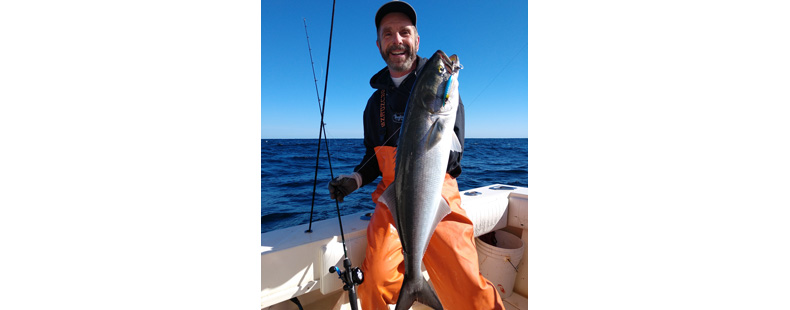Congressman Rob Wittman represents the First District of Virginia
When you hear from residents in your district or state about ocean-related issues, what concerns them most? Why do these issues matter so much to them?
The number one issue I hear from constituents on oceans/marine ecosystems issues is marine resource sustainability. As more and more folks enjoy recreational fishing, they have developed a greater interest in protecting fish stocks for themselves and generations to come. They have an interest in fisheries management, water quality, and access to marine resources. These issues matter because of the connection they feel to these marine ecosystems and the resources within; they enjoy the experience of pursuing the capture and catch and release of the finfish, shellfish and crustacea.
We have worked hard to protect, preserve and enhance the marine resources folks hold dear. The Chesapeake Bay is the life-blood of our region’s economy, the home to countless species of fish and other wildlife, and a true natural treasure that needs to be maintained and protected. I grew up enjoying the natural wonders of the Bay and the watershed area and know countless people, including my son, who make their living on the water.
During my time in Congress I’ve authored bipartisan legislation, now signed into law, The Chesapeake Bay Accountability and Recovery Act. Aimed at preserving the environmental health of the Chesapeake Bay, this legislation increases coordination and transparency within Chesapeake Bay restoration efforts. I’ve also worked with my colleagues to introduce The Chesapeake Bay Program Reauthorization Act. The program coordinates data collection and distributes grants to states for Bay restoration efforts, of which a majority goes to states in the Chesapeake Bay Watershed to help control pollution and manage runoff into the tributaries that feed into the Bay.
In addition, every year, I work with my colleagues throughout the budget and appropriations process to secure adequate funding for the Chesapeake Bay Program, an intra-state partnership across multiple states, local governments, academic institutions, and non-governmental organizations working together to implement plans to protect the Bay.
The Chesapeake Bay is not just about budget numbers and bills. The Bay and watershed area is home to nearly 17 million people and more than 3,600 species of animals and plants. On the federal level I believe we have an obligation to defend this precious natural resource for our region’s ecosystems, families, and economy.
What in your view are the Magnuson-Stevens Act’s greatest strengths?
I believe that any conservation program the government implements should be thoughtful, utilizing the best data and science available in a transparent manner. This effort is critical for promoting robust domestic seafood and recreational fishing industries, both of which play an undeniably significant economic role in Virginia and across the nation. The Magnuson-Stevens Act has been critical to the development of responsible fisheries management and has allowed our coastal communities to flourish. The Act allows regional fisheries councils to decide what is best for their area – not just a national standard. However, it is critical that we continue to use sound science to drive our decisions when it comes to fisheries management. I remain committed to ensuring our fisheries, and the people that support it, are protected by balancing the biological needs of our fish stocks and the economic needs of our fishermen and coastal communities.
How do fisheries resources impact the economy and businesses in your state or district?
I grew up on the Chesapeake Bay and still try to spend as much time there as I can. As a coastal district, fisheries resources have a great impact on the First District of Virginia. The 2009 Fisheries Economics of the U.S. report by the National Oceanic and Atmospheric Administration (NOAA) indicates that the commercial seafood industry in Maryland and Virginia contributed $3.39 billion in sales, $890 million in income, and almost 34,000 jobs to the local economy. Many Virginians make their living off the water, but we also have a strong recreational fishing industry as well. Recreational fishing alone is responsible for more than $1.3 billion in economic impact in the Commonwealth.
If you could go fishing with one person, dead or alive, who would it be?
Absolutely it would be Zane Grey. He was a pioneer in big game sport fishing and made some unbelievable catches with very basic fishing tackle. He was the first to travel the world to pursue big game sport fish.


